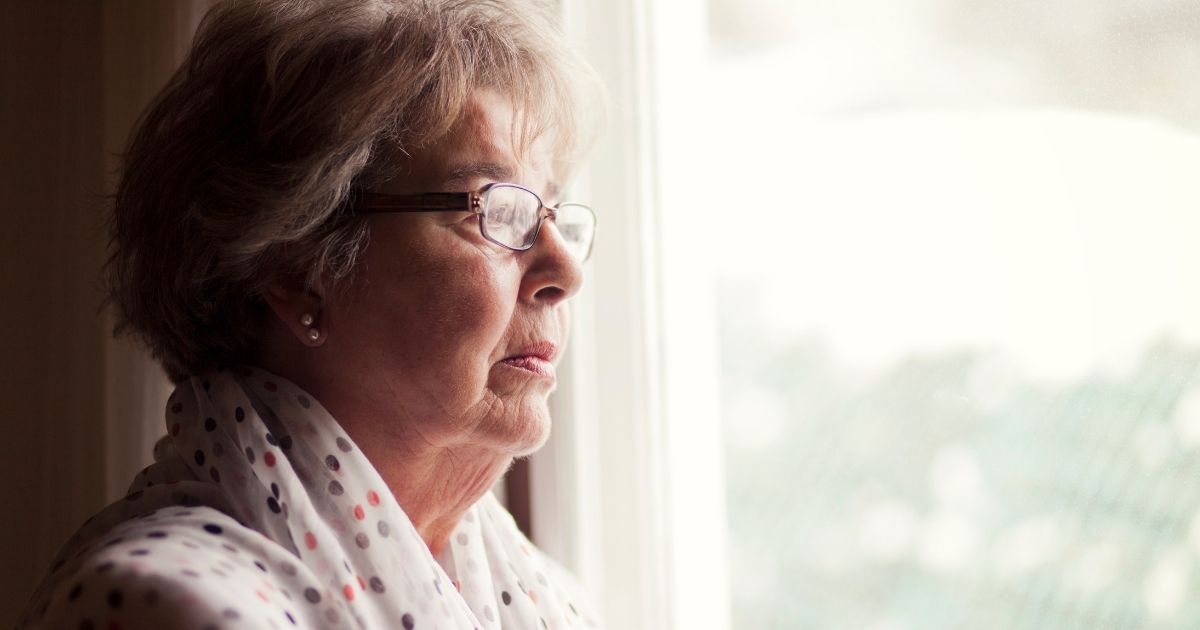Clinical depression in seniors is common, affecting about 6 million Americans age 65 and older. But, only about 10% get the treatment they need.
This is most likely because older people often will display symptoms of depression differently than younger people. Depression in seniors is often confused with many illnesses and the medications used to treat them.
Depression Increase Health Risks
Seniors with depression have been linked to having a greater risk of cardiac diseases and death from illness, and it also reduces their ability to rehabilitate from an illness. Multiple studies of nursing home patients with physical illnesses have shown that the likelihood of death from illness increases substantially for seniors living with depression.
An increased risk of death from a heart attack has also been linked to depression. For that reason, it’s imperative to make sure the senior in your life that you’re concerned about be evaluated and treated, even if the depression is mild.
Signs of Depression in Seniors
Seniors may not exhibit the same signs of depression as their younger counterparts. Instead, they may:
- Be constantly tired
- Have trouble sleeping
- Feel confused
- Struggle to pay attention
- Not enjoy activities they used to
- Move more slowly
- Have a change in weight or appetite
- Feel hopeless, worthless, or guilty
- Endure aches and pains
- Have suicidal thoughts
By asking a series of questions, the older adult’s primary care doctor can check for depression. Doctors specializing in geriatric medicine often ask these questions during a visit for a chronic illness or a wellness visit.
Depression in seniors also has been connected with an increased risk of suicide. The suicide rate of people age 80 to 84 is more than double than the rate of the general population. The National Institute of Mental Health considers depression in seniors to be a major public health problem.
Growing older often is accompanied by the loss of social support systems. Many times this is due to the loss of a spouse, retirement, or relocation. Because of changes in circumstances and the fact that older adults are expected to slow down, the signs of depression are often missed. As a result, there is often a delay in treatment, forcing many seniors to struggle unnecessarily with depression.
Risk Factors for Depression in Seniors
Other factors raise the risk of depression in seniors:
- Being female
- Being single, divorced, or widowed
- Lack of a supportive social network
- Stressful life events
Physical conditions like hypertension, stroke, diabetes, cancer, dementia, and chronic pain further increase the risk of depression. Also, these risk factors for depression are often seen in seniors:
- Taking certain medications or a combination of medicines
- Dependence on others
- Disability
- Family history of major depressive disorder
- Fear of dying
- Living alone, being socially isolated
- Past suicide attempt(s)
- The recent loss of a loved one
- Presence of chronic or severe pain
Treatments for Seniors with Depression
Fortunately, there are several treatments for seniors experiencing depression. They include medicine, psychotherapy or counseling, or brain stimulation such as transcranial magnetic stimulation.
Antidepressants often are slower to start working in seniors, more so than in younger people. Since older adults are more sensitive to medicines, doctors often prescribe lower doses initially. Generally, the length of treatment for treating depression in seniors is longer than that of younger patients.
With treatment, most seniors will begin to feel better and act more like their old selves. Expect their mood to slowly improve. It takes time to feel better, but it can happen for the senior in your life.
Caring and Compassionate Support
Caring for an aging loved one suffering from depression can be very stressful. Put your mind at ease by contacting Adultcare Assistance Homecare (AAH). As a locally owned agency with a 20-year track record of success, our highly trained caregivers can step in and provide your family with the support that’s needed.
Our home care services include respite care, companion care, medication reminders, senior transportation, light housekeeping, and even 24-hour live-in assistance.
To learn more about our award-winning services, or to get a FREE home care assessment for a senior in Phoenix, Sun City, or Tucson, AZ, today, please visit AAH at: www.adultcareassistance.com.





